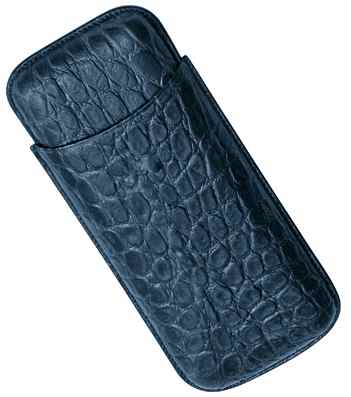

Title: Custom Designed Handmade Tooled Leather Cigar Wallet Case
Shipping: $19.00
Artist: N/A
Period: Contemporary
History: N/A
Origin: N/A
Condition: Excellent
Item Date: New
Item ID: 5499
These classic European style cigar cases are made in the USA. With use, this leather develops a rich patina and aroma. These sturdy handmade cases provide protection and an easy sliding fit. With fine stitching and closely trimmed seams, The craftsmanship is only the best. Available in your Custom sizes. Custom initials if needed. Price range $195 - $295. Your choice of hand tooled design or personalization is included in price! The hand tooled leather cigar wallet can measure any size. It can take up to 6 weeks to make. This is a custom handmade wallet. in your color and style. We are committed to enhancing our customer’s lives by discovering creating, and pointing out only the best art we can find in the world today. We Are Taste-Makers, Art Advisers & Consultants.
Link: http://en.wikipedia.org/wiki/Wallet
A wallet, or billfold, is a small, flat case that is used to carry personal items such as cash, credit cards, identification documents (driver's license, identification card, club card, etc.), photographs, business cards and other paper or laminated cards. Wallets are generally made of leather or fabrics, and they are usually pocket-sized and foldable.
The modern bi-fold wallet with multiple "card slots" became standardized in the early 1950s with the introduction of the first credit cards. Some innovations include the introduction of the velcro-closure wallet in the 1970s. Pocket-sized wallets remain extremely popular to this day.
The history of the wallet, was the poor man's portable larder; or, poverty apart, it was a thing that you stocked with provisions. It was found that sometimes a man may be eating out of it directly but the most characteristic references allude to its being "replenished as a store", not in the manner of a lunch basket but more as a survival pack.
As metals became increasingly used as currencies, wallets began taking shape to include coins, and in some cases, statements of accounts. In recounting the life of the Elizabethan merchant, John Frampton, Lawrence C. Wroth describes the merchant as, "a young English-man of twenty-five years, decently dressed, ..., wearing a sword, and carrying fixed to his belt something he called a 'bowgett' (or budget), that is, a leathern pouch or wallet in which he carried his cash, his book of accounts, and small articles of daily necessity".
In addition to money or currency, a wallet would also be used for carrying dried meat, victuals, "treasures", and "things not to be exposed". It was considered "semi-civilized" in 19th century America to carry one's wallet on one's belt. Ironically, at this time, carrying goods or a wallet in one's pocket was considered uncivilized and uncommon.
In Spain, a wallet was a case for smoking paraphernalia: "Every man would carry a small sheaf of white paper in addition to a small leather wallet which would contain a flint and steel along with a small quantity of so-called yesca, being a dried vegetable fibre which a spark would instantly ignite.